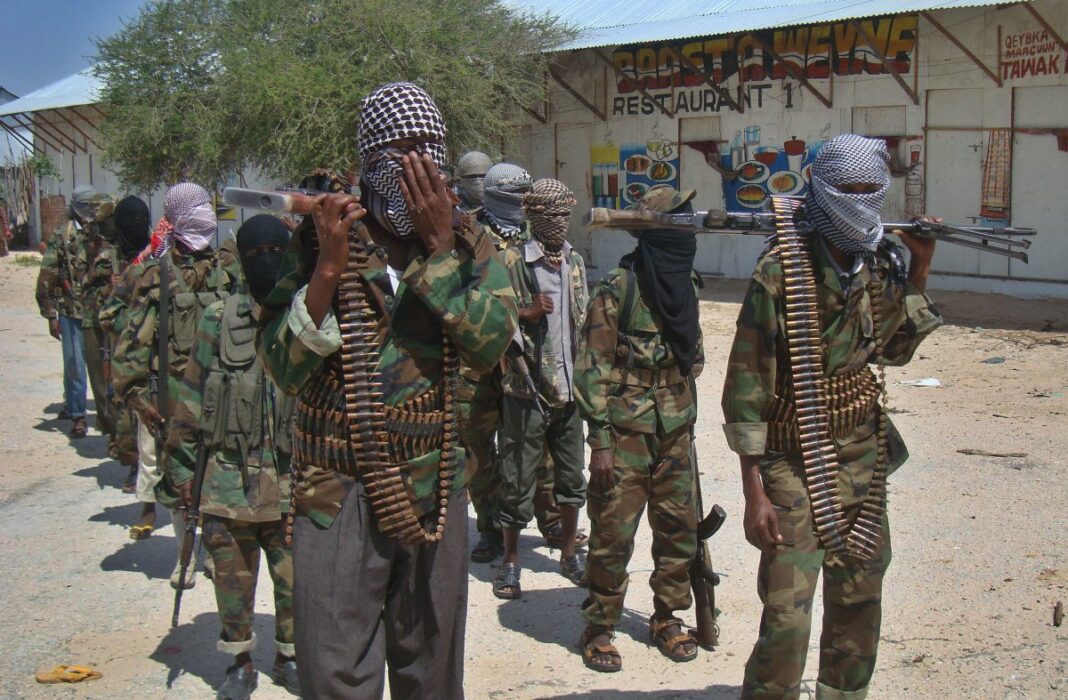African nations are beginning to realise that their continent has become the new hub for Islamist terror violence in the last few months. What they previously dismissed as an irrational fear is now a bloody reality.
The reputed African Centre for Strategic Studies undertook an exercise to quantify the terror threat and the result is a February 2022 report, “Trajectories of Violence Against Civilians by Africa’s Militant Islamist Groups”, authored by Anouar Boukhars.
The report says: “This escalation has been characterized in recent years by an upsurge of violence targeting civilians. In 2021, a quarter of all militant Islamist-linked attacks were on civilians. This compares to 14 per cent in 2016.”
The report identifies five major theatres of militant Islamic violence where the civilian population is getting used to violent attacks as part of their daily lives. These are: the Sahel, Somalia, the Lake Chad Basin, northern Mozambique, and North Africa. Understanding the variations in the patterns of violence against civilians across these local contexts, therefore, “holds keys to enhancing civilian protection from these attacks”.
The Sahel saw a rapid escalation in Islamist violence since 2017, actually a fifth of all violent acts are terrorist in nature (38 out of 187 recorded violent events). That number reached 42 percent in 2021 (833 out of 2,005). This makes the Sahel the region with the highest level of militant Islamist violence targeting civilians across the continent, comprising 60 percent of all such violence against civilians in Africa.
The Sahelian countries of Mali, Burkina Faso, and Niger are targeted by the Macina Liberation Front (FLM) (the most active element of the Jama’at Nusrat al Islam wal Muslimin (JNIM) coalition) and the Islamic State in the Greater Sahara (ISGS).
The terror groups exploit the “intercommunal tensions” which have become highly polarized in contested regions of the Sahel.
“Militant Islamist groups have shrewdly exploited inter – and intra communal rivalries over resources and rights” and have also “amplified frustrations with the respective government’s perceived failings so as to ramp up recruitment” among local farming communities.
This brought the ethnic communities on a collision course with the Islamist groups leading to several massacres.
The report refers to the pushback against the terror attacks: “Government forces confronting Sahelian militant Islamist groups have, at times, added to the escalation of violence against civilians.
Heavy-handed tactics by the security services have alienated certain Fulani pastoralist communities, reinforcing the outgroup narrative and driving militant Islamist group recruitment.
This, in turn, has enabled more violence against civilians in contested regions. The reliance of security forces’ on communally based self-defence groups in their security operations, and absent of strong oversight, have also “aggravated communal tensions. and triggered more deadly forms of violence against civilians.”
In Somalia, terror group, al Shadaab “has largely been involved in ambushes, complex attacks, and battles with state and nonstate security forces”.
The group has, of late, begun to employ suicide bombers and uses improvised explosive devices and conducts targeted assassinations of government officials and civilians “as a tool of intimidation”. It also imposes harsh punishments on civilians violating the extremist group’s legal code.
The report says al Shadaab uses these tactics to expand the territory under its control and project its influence over government and regional forces.
These attacks are largely aimed at controlling territory and influence vis-à-vis government and regional forces. Heavy-handedness by these forces is not widely seen as an escalator of al Shabaab violence against civilians.
In recent times, after interventions by regional security forces threatened the group’s survival, its territorial control shrank as did its ability to mount attacks on civilians.
“Over time the group increased its use of suicide bombings and IEDs (remote violence), which accounted for an 83 percent spike in civilian fatalities in Somalia between 2015 and 2016. Al Shabaab also escalated its civilian-targeted violence—against businesses that did not pay protection money, harshly punished dissent, and exacted revenge on its enemies”.
“The years 2017-2019 were deadly for civilians, with al Shabaab perpetrating nearly 900 direct and indirect attacks on civilians in Somalia, resulting in nearly 2,000 fatalities. Recent years have seen increased incidents of al Shabaab battles with security forces, comprising nearly three quarters of all events in Somalia.”
In Mozambique, terror activities are committed by Ahlu Sunnah wa Jama’a (ASWJ) in the Cabo Delgado Province where decades of government neglect and systematic under investment have left it the poorest province in the country.
In the last five years, “some 1,400 civilians have been killed and almost 750,000 civilians, roughly one-third of the total population of Cabo Delgado Province, have been displaced” because of terror violence.
Anouar Boukhars report refers to the poorly equipped official forces that emboldened the terror group to broaden its base.
“Mozambican armed forces were ill-equipped and poorly trained to handle a militant Islamist insurgency. They responded to ASWJ’s brutal acts of violence with their own ruthless tactics that reportedly included the widespread use of torture, extra-judicial executions of civilians suspected of supporting the group, and the mutilation of bodies of presumed ASWJ fighters. This only further increased ASWJ recruitment and violent reprisals against civilians, which comprised two-thirds of ASWJ’s violent activity in 2020.”
The report concludes saying that “heavy-handed responses of security force, meanwhile, almost always have an escalating effect, driving recruitment for violent extremist groups and further endangering civilians in contested areas”.
It recommends that the African governments must realise that “each context is different and calls for a course correction attuned to local specificities and demands”. But it adds a caveat: “Given the instrumentalized use of violence against civilians by militant Islamist groups, however, a reassessment and retargeting of responses is needed.” (POREG)

